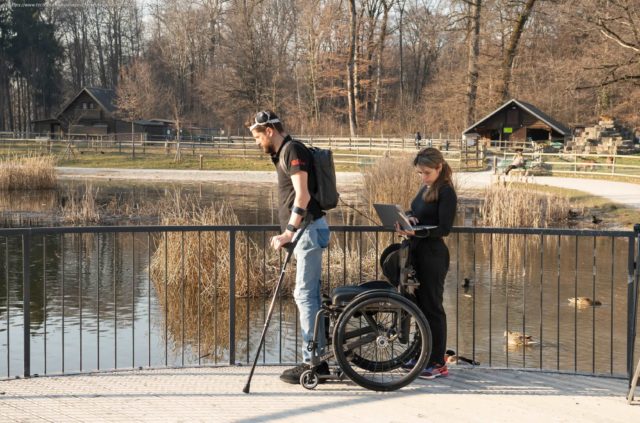A spinal cord injury during a biking accident over a decade ago left Gert-Jan Oskam, 40, unable to walk due to limb impairment. An experimental neurorehabilitation program.
Forward-looking: Computerized assistance has helped injured and disabled people regain the ability to move limbs in the past, but a new experiment has restored a broader range of mobility for one patient. After a brief period of calibration, a set of implants have enabled a paralyzed man to walk naturally with crutches while navigating complex terrain.
A spinal cord injury during a biking accident over a decade ago left Gert-Jan Oskam, 40, unable to walk due to limb impairment. An experimental neurorehabilitation program involving electronic stimulation restored basic mobility, but his overall recovery was limited. After three years of no further changes, a new trial involving a brain-spine interface (BSI) drastically improved his condition.
This setup uses a combination of hardware and software to create a wireless link between the brain and the spinal cord.
Home
United States
USA — software Paralyzed man walks again after brain and spinal computerized implants






